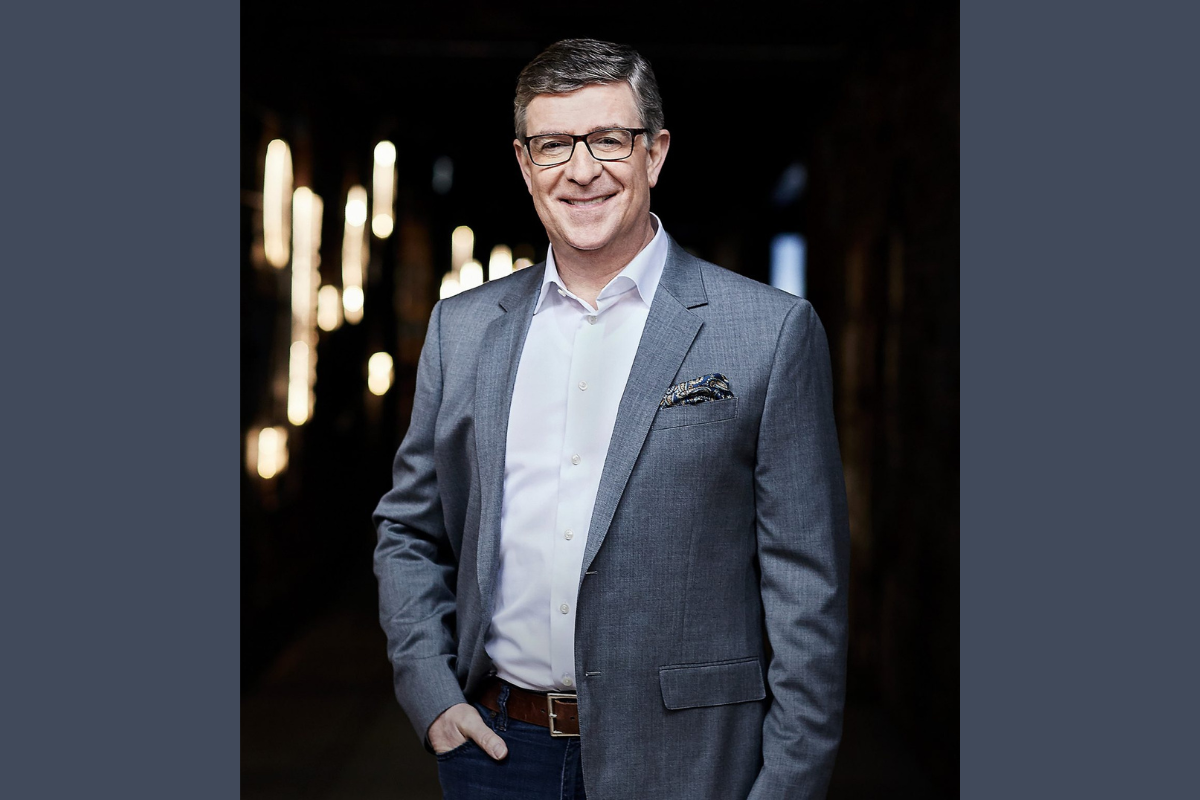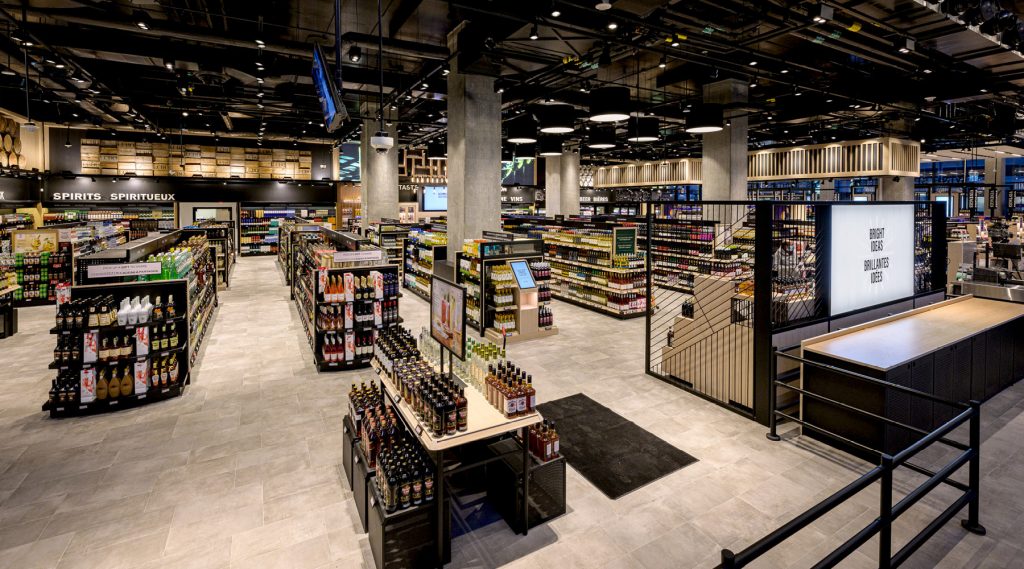Culture as a Driver of Transformation: George Soleas
Liquor Control Board of Ontario’s President and CEO George Soleas discusses evolving this 95-year-old organization’s culture in support of customer-centricity.
George Soleas entered the wine business at a very interesting and challenging time. It was 1986, George says, when Canadian vintners "were seeking to improve the quality of their wine by moving to different grapes varieties".

Competition was on its way, with Canada and the United States negotiating a free trade agreement, which would pry open the protected domestic market and allow competition from prominent wine regions such as California. "I was actually hired by the industry during a crisis," George recalls of his initial experience, working for an Ontario winery.
He describes his initial job as "putting protocols together and quality control in a very large winery here in Ontario". He was also part of the decision to replant all of Ontario’s vineyards "so that we could start producing better quality wines and to be able to compete" and describes this time as "an amazing opportunity for change".
Wineries in the province of Ontario rose to the challenge of competing with imported products, and George played an important role in guiding the industry’s transformation as it moved from producing downscale tipples for domestic consumption to vinting world-class wines. It helped that Ontario boasts one of the world’s premier grape-growing regions, the Niagara Peninsula, which cuts between Lake Ontario and Lake Erie and boasts a unique microclimate that produces world-famous ice wines.

We’ve gone from a culture 25 years ago, or even 15 years ago, that didn’t have to try hard for customer loyalty, to now having competition in our marketplace.
Change and transformation
George is no stranger to change and transformation. And he brings this experience to the Liquor Control Board of Ontario (LCBO) as President and CEO. An agency of the Ontario provincial government, the LCBO was created in 1926 to control and regulate the sale and consumption of alcohol in Ontario. Back then, the board’s main goal was providing beverage alcohol that was safe to consume. Its stores were located discreetly out-of-site on side streets and customers required permits to purchase beverage alcohol. It was transactional versus being built around the customer.
Today, George oversees one of the largest retailers and wholesalers of beverage alcohol in the world. His leadership came at a time when the LCBO faced increased competition as it sought to modernize the marketplace and open its doors to wholesalers, including grocers and convenience outlets.
Since taking on the role of CEO in 2016, George has sought to embed innovation in the organization. Part of this was overhauling the corporate culture, which was rooted in a bygone era of being "the only game in town", he tells The CEO Magazine. "That’s not the culture and the philosophy that this organization has today. It’s now one of customer-centricity," he says.
"We’ve gone from a culture 25 years ago, or even 15 years ago, that didn’t have to try hard for customer loyalty, to now having competition in our marketplace," George says. "Competition is music to my ears, because it allows me to raise the bar and to challenge people to do better because someone else will do it better if we don’t. This is what drives our transformation."
Today he points proudly to LCBO’s online store, where revenues surged from CAD$39 million (US$29.9 million) pre-pandemic to nearly CAD$143 million (US$109 million). "The ambition is to have every single product that is in our stores – as well as in channels that the customer doesn’t see, such as restaurants – online for the customer to access," he shares. "That’s an amazing 28,000–30,000 product selection."
Competition is music to my ears because it allows me to raise the bar and to challenge people, to do better because someone else will do it better if we don’t.
Focus on the customer
The LCBO still operates more than 680 retail outlets and has agreements with convenience outlet stores, which reach all corners of Canada’s most populous province. It recently also relaunched its 24,000 square-foot Toronto flagship store, which stocks more than 4,000 products and leverages interactive digital kiosks to provide information on where to find products, availability and exclusive releases.
"I am extremely passionate about delivering a remarkable customer experience to our customers," George says. "It’s the only way you’re going to bring the customer back."
The focus on customers is a drastic change from the LCBO’s roots as a product of Prohibition but its unique mission remains, which is to provide a return to its stakeholders – the people of Ontario. In 2020–2021 it remitted nearly CAD$2.39 billion (US$1.83 billion) to the Government of Ontario, which helps fund key local and provincial public programs and services including health care, education and infrastructure.
I am extremely passionate about delivering a remarkable customer experience to our customers. It’s the only way you’re going to bring the customer back.
George calls the LCBO "an ambidextrous organization" since it strives to maximize revenues for the Ontario government but also "has a mandate to enforce and to encourage moderation, which means that we provide the products and information Ontarians need to make positive drinking choices that support a healthy lifestyle".
Being ambidextrous describes much of George’s career, which he describes as "anything but a straight line". He worked in quality assurance for a major winery in Ontario, with the Canadian Wine Institute and later studied winemaking at the University of California, Davis. George completed his PhD in biochemistry at the University of Toronto, focusing his thesis on the biochemical constituents of wine that affect human health.
The LCBO recruited George in 1997, asking him to head up quality assurance and oversee "one of the most advanced, best-in-class alcohol laboratories in the world". He spent 11 years as Vice President of Quality Assurance/Specialty Services, then acted as Senior Vice President Logistics/Quality Assurance for five years before becoming an Executive Vice President in 2013.
In 2016, he took on the role of President and CEO. It’s easy to see why quality remains a top priority for the organization, which conducts almost 700,000 tests a year from its own lab.
Our top priority was keeping the LCBO a safe place to work and shop for our employees and customers.
Navigating the pandemic
Like many other organizations, the LCBO has not been immune from pandemic-related challenges in the last few years. The government had planned to close LCBO stores in March 2020, but LCBO had previously undertaken extensive risk management and, believe it or not, a pandemic was one of the risk scenarios it had prepared for. "We provided these scenarios and we were already well prepared, so we were allowed to continue operating," he says, with the Ontario government deeming the LCBO as providing an "essential service".
Managing a retail business was no easy task during the pandemic. The LCBO adjusted its stores to meet safety protocols and also provided staff with protective equipment, enhanced health and mental health benefits, and extended the number of sick days for its employees and kept up communications with employees, customers and suppliers.
"We made ourselves available to the employees and really promoted wellbeing," George says, adding that he and others in management visited stores and warehouses throughout the pandemic. "You need to set the example and you need to tell your people that if it’s safe for you, it’s also safe for me or vice versa."
As a retailer and wholesaler sourcing products from 80 countries, supply chain issues have hit the LCBO hard, but he says he’s used the global supply glitches to encourage Ontario brewers, vintners and distillers to rise to the challenge. "Here’s your opportunity to actually sell more and shine at a time when there is such a big crisis," he says. "Unfortunately, I anticipate that the supply-chain crisis is going to continue for many, many more months, if not years."
In the meantime, George plans on continuing his transformation efforts with customers at the center. "People say, ‘When will this transformation end?’ I always say, ‘Never. Successful organizations continuously transform.’"